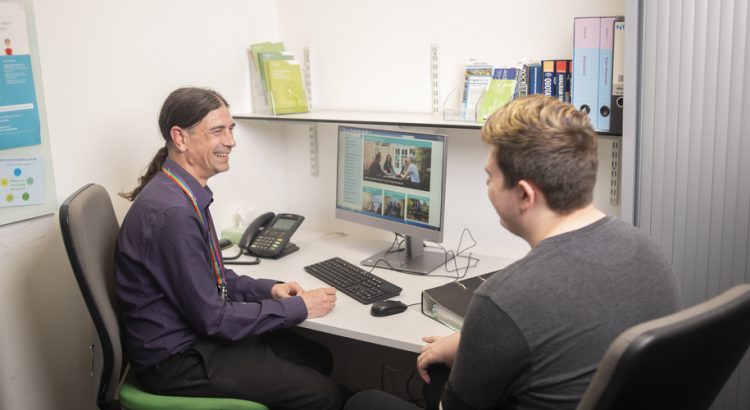Each student has individual needs and the prospect of attending University can feel overwhelming even before considering any extra support they may need to succeed. Each University will have its own rules and provisions which can seem daunting at the point of application and confusing for parents/guardians alike. We just want to highlight some of the key services available to prospective students that you may wish to direct them to.
We highly recommend that any prospective students fill out the following form https://www.exeter.ac.uk/wellbeing/prospectivestudents/form/ this will enable the team to put a plan in place to support the individual before arrival. This could range from extra time in exams, counselling or accessible accommodation. If they would like any help or guidance on filling out our prospective student online form, please call us on 01392 72 4381 or email wellbeing@exeter.ac.uk
Wellbeing
The Wellbeing team promotes better mental health across the student community and supports students who may be experiencing anxiety, stress and have other mental health problems which affect their studies. They have 1:1 appointments alongside drop-in sessions and short term courses on a range of topics such as anxiety disorders (panic, social anxiety, and obsessive compulsive disorder), eating difficulties, depression, bipolar disorder, personality disorders, psychoses.
Our AccessAbility Pathway is made up of a team of disability specialists dedicated to supporting students with a disability or long-term health condition including Specific Learning Difficulties and Autism Spectrum Conditions.
ASC Transition Day
Each year the University runs a pre-arrival event for students intending to study at Exeter. These events run as part of the University’s Enhanced Induction Programme and provide an introduction on what to expect when you arrive at university, information on student life, and an opportunity to find out about key support services and speak to relevant members of staff.
Student Guild/Union
- Provides the Advice Service with trained Harassment Advisors (to deal with bullying and harassment issues)
- Nightline 07786 209 309, a confidential, anonymous, non-judgmental, non-directional and non-advisory space for all students at the university. The service is open every night during term-time, from 8pm until 8am and is run by students, for students.
- Peer Support Groups
- Residence Life Team Residence Life Teams support students living in University accommodation. They can provide a listening ear, advice on student life and signposting to other support services.
- Community Wardens
Estate Patrol
Estate Patrol is the University’s 24/7 safety and security team who can be contacted at any time for advice and assistance. They take care of security in halls of residence on campus and support the Residence Life Teams.
Mentoring and Learning Support
Many students are concerned about falling behind and who to go to for help. Once they are a student and classed as an independent learner, the fear may kick in that they do not have a reliable teacher to call on. It is at this point no doubt they then appreciate how lucky they were! Although course leaders are helpful, set up drop-in revision sessions and reply to emails there may not be that 1:1 support students need.
Maths and Stats mentoring is available to many students as a way to get help from a postgraduate student who is from your academic discipline or college. You can access this in various ways:
- individual appointments
- drop-in helpdesks (small group and individual slots available)
- organised small group sessions
You are able to access this support in the following Colleges:
- Engineering, Mathematics and Physical Sciences
- Life and Environmental Sciences
- Social Sciences and International Studies
- Business School
Outside of lectures, our Library offers help to all students with academic writing skills in particular in the following areas:
- 1:1 Appointments
- Academic writing
- Study and time management
- Understanding feedback
- Reading and note-making strategies
- Critical analysis
- Revision and exam strategies
- Presentation skills
- Proofreading Workshop
This should be useful information to pass onto students to reassure them and inspire confidence in the prospect of feeling like they can succeed in Degree level work.
On or offline the University is dedicated to ensuring that all students regardless of background can receive the help and support that they deserve. If students are concerned or want to know more then tell them to get in touch now with their prospective University college (department).
Below is a link to a free booklet which can be sent to students who are concerned about settling into University Life and will give them some top tips to making friends and feeling comfortable.


